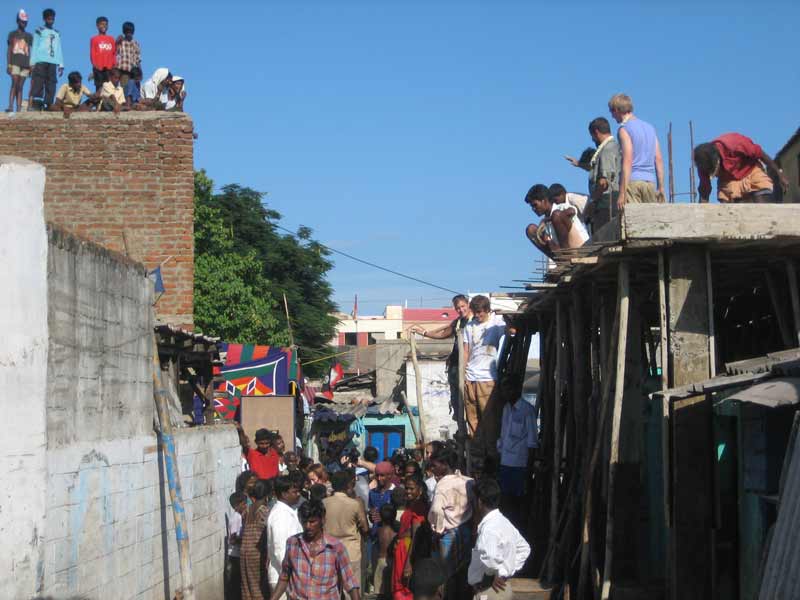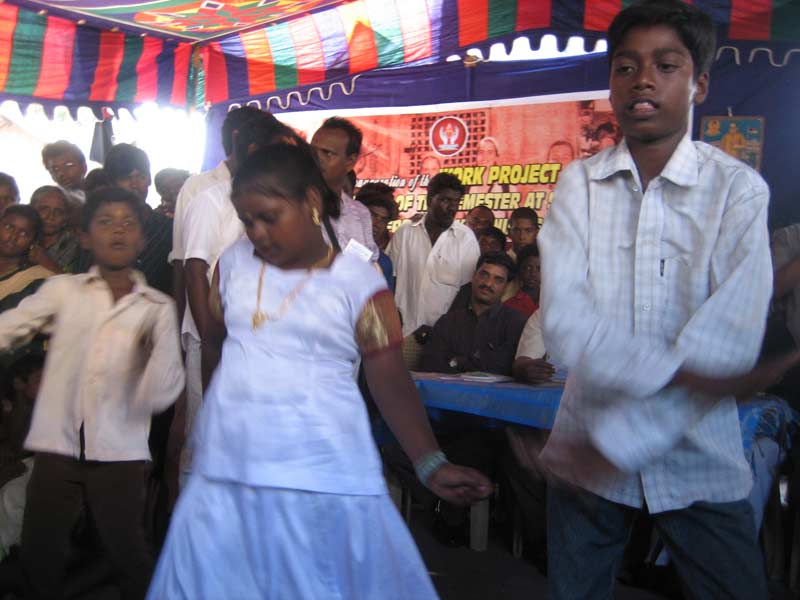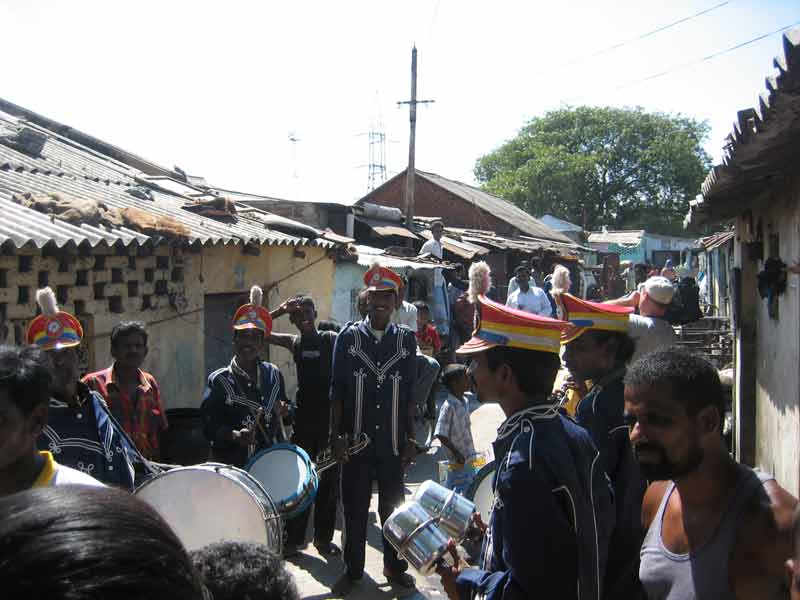Semester at Sea Fall
2006 Voyage 
TABLE
OF CONTENTS
- Home Page
- My bio
- Multisited Ethnography
Project: Realms of
Conflict Among Youth (Egypt, Turkey, Spain)
- Shipboard Interview
- Japanese Youth: To
Conform or Rebel?
- Vietnam: Youthful
Participation with Children
- Burma: Finding
Never-Neverland
- India:
India's Poorest
Caste, the Dalits
- Egypt: A Wife Acquired, A
Dream Fulfilled
- Turkey: Escaping Near
Imprisonment
- Spain: Witness to a
Protest in Barcelona
- Open Letter
 |
|
|
Responsibility and Obligation
Towards
India's Poorest Caste: The Dalit's
By
Ryan Harper
It was my first day in India and I was on a bus heading towards a Dalit Village in the city of Chennai on only my second Semester at Sea sponsored trip, a service project designed to perform a day's worth of labor for India's lowest caste. We exited the bus to the surprise of a marching band awaiting us and people dressed in vibrant colors, all dancing excitedly to the music.
They led us through the street and headed towards a covered area where a few of the children performed a series of dances for us. It was obvious that the living conditions of these people were poor at best but it was almost hard to notice such things because of the unbelievable beauty and good spirited character of the people of the village. The people laughed uncontrollably and were so willing to engage us in their dancing and celebrating.
We finished the ceremony with a speech given by our trip leader which was returned by a speech and donation given by a politician of the nearby area. We could only faintly understand what was being said by the interpreter but it was certainly obvious that he was giving advice and instructions on how the Dalits can attempt to better their current situation. This is quite common when charity is received by the poor people of India as outlined in Sara Dickey's article entitled "Cinema and the Urban Poor in the South India" where she states that "the wealthy will occassionally try to 'do something' for their less advantaged fellows, accompanying their charitable acts by lectures on how to improve one's life."
We continued the day by working hard and moving concrete to build a roof over top a community center and school for the village. The heat was smoldering and the labor was no easy task, but I can confidently say that I have not once felt so rewarded and humbled on this trip as I did that afternoon with the Dalits. Dickey's article also states that "the urban poor lack most of the resrouces to take effective action in the larger society. Power comes from wealth, prestige, and political connections. When poor people are faced with difficult or unfair circumstances they can do little in the face of entrenched bureacracy." This is an unfortunate consequence of the caste system in place in India, however, based on what I witnessed, the Dalit people have found a way to thrive in less conventional ways. Their vibrance and exhuberance for life radiated from each and every one of them and I can guarantee that not a person on that trip felt that what we did was anything more than an obligation that has been bestowed on us because of our having come from such a fortunate situation.


